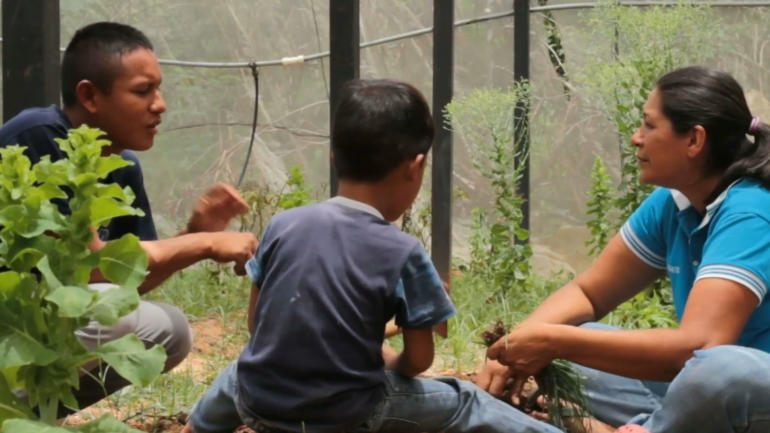Venezuelans are preparing to face the effects of the economic sanctions imposed by the United States against the Venezuelan government at the beginning of August. Many people are worried food shortages will become even more critical as the sanctions curtail the government’s ability to purchase food from international sources. One local community engaged in an agricultural self-sufficiency program says it’s providing its residents all the food they need. Mary Triny Mena reports from Caracas.
At a farm right in the heart of the country’s capital, Orailene Maccari is getting ready is to feed the animals that provide nourishment for her and around 30 families in her community.
Members of the community work together to raise ducks and chickens, to farm fish, and grow a variety of vegetables. They’ve been raising their own organic food for 13 years now. And Maccari says because of the U.S. sanctions it has never been as important or as much of a challenge as it is today.
The blockade it is a great opportunity for Venezuelans,” says Orailene Maccari, an El Algodonal community leader “We have to produce, and we have to work, because by working and producing, we can protest and we can defeat anybody who wants to harm us.”
Venezuela only produces about 20 percent of the food it consumes. Many of the most needy Venezuelans depend on imported subsidized food boxes, which the government says the U.S. sanctions will soon make it difficult to stock.
And with the minimum wage at its lowest point ever – less than three dollars a month for many Venezuelans buying food at a store is simply not an option.
But Venezuelans have been coping with chronic food shortages for several years now and many say they can’t see how the U.S. sanctions will make any difference.
“Every day we face hunger and insecurity, says Luis Maita, a resident of Caracas. We suffer with these sanctions and without them. Either way, the situation is the same.”
For the residents of the El Algodonal agro-ecological community, and dozens of others like it across Venezuela, food on their tables comes from their work in the fields. Gineth Tapia says it’s like having a supermarket in her backyard.
“You don’t have to buy the products at higher prices, says Gineth Tapia, “ You have it here at your own house and you produce everything, you don’t have to pay any middle man.”
Working side by side with her nephew and grandson, she says this is the right moment to become self-sufficient and teach future generations how to produce the food they’re going to eat.
 CGTN America
CGTN America
